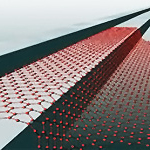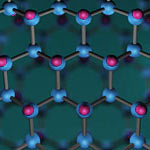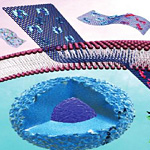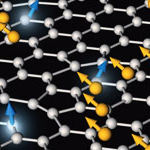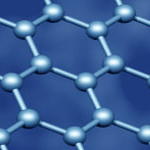
Research groups
Graphene research spans a range of disciplines, with new areas of exploration discovered all the time.
These are the groups currently involved in graphene and 2D material research at the University:
-
Communications
Communications researchers in the Department of Electrical and Electronic Engineering conduct extensive research in passive components, active devices and systems for communication, radar and sensing applications over a frequency range from hundreds of megahertz to terahertz. They have an interest in investigating the properties and behaviours of graphene at high frequencies, including microwaves, millimetre-waves and terahertz waves.
Read more
-
Condensed Matter Physics (CMP)
The group's research covers nanoscale and mesoscopic materials (graphene being a noteworthy example), metamaterials and quantum fluids and solids.
Read more
-
Nano and functional materials
Within the Department of Materials, there is a multidisciplinary activity on the formation, structure and properties of nanostructured materials, including graphene. The ability to characterise and manipulate the structure of matter on the nanoscale is fundamental to the development of advanced structural and functional materials. Research is broad ranging and encompasses areas such as composites, fibres, surface engineering for improved performance and environmental resistance.
Read more
-
Nano-engineering and Storage Technology (NEST)
The research of NEST encompasses many aspects, including the development of extensive simulation and analysis tools, the fabrication of novel media for both storage and sensor applications, experimental analysis of storage and sensor systems, and the analysis of systems (recovery of data) for data storage.
Read more
-
Nanomedicine Lab
The Nanomedicine Lab's mission is to generate and disseminate fundamental knowledge in the emerging field of nanomedicine by bringing together bioengineering, pharmacology and nanotechnology and their translation to advanced, clinically-relevant therapeutics and diagnostics. The aim is the development of novel, viable and effective therapeutics based on bioengineering and nanotechnology components, used as either the 'drug' or the 'delivery system'.
Read more
-
Photon Science Institute (PSI)
The PSI provides an innovative and interdisciplinary environment for research into and the application of photon science - the understanding of how light interacts with matter. The Institute fosters collaborations across the physical, engineering, material, medical and biological sciences.
Read more
-
Department of Chemistry
The Department of Chemistry develops specialist electronic materials. We are involved in world-leading research in molecular magnets and graphene, membranes and energy storage devices, and develop innovative materials for membranes. Computational science is used to provide important insights into, and predictions for, new organic and nanoporous materials.
Read more

